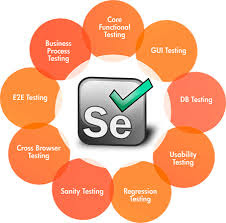Java with AI in 2025: A Glimpse into the Future
Free Demo : https://shorturl.at/y7Dip
This document explores the potential integration of Artificial Intelligence (AI) with Java development by the year 2025. It examines how AI could revolutionize various aspects of Java programming, including code generation, debugging, performance optimization, and application security. Furthermore, it discusses the challenges and opportunities associated with this convergence, offering a perspective on the evolving landscape of Java development in an AI-driven world.
The Convergence of Java and AI
By 2025, the intersection of Java and AI is poised to be a significant force in software development. Java, known for its platform independence, robustness, and vast ecosystem, will likely be further enhanced by AI-powered tools and frameworks. This synergy promises to streamline development processes, improve code quality, and unlock new possibilities for creating intelligent applications.
AI-Assisted Code Generation
One of the most impactful applications of AI in Java development will be AI-assisted code generation. Imagine tools that can automatically generate Java code snippets based on natural language descriptions or high-level specifications. These tools, powered by machine learning models trained on massive code repositories, will significantly reduce the time and effort required for writing boilerplate code, implementing common design patterns, and even creating entire application modules.
Intelligent Autocompletion: Enhanced IDEs will offer more sophisticated autocompletion suggestions, predicting not just variable names and method calls, but also entire code blocks based on the context and the developer's intent.
Code Synthesis from Natural Language: Developers will be able to describe the desired functionality in plain English, and the AI will generate the corresponding Java code. This will lower the barrier to entry for novice programmers and accelerate development for experienced ones.
Automated Unit Test Generation: AI algorithms will analyze the code and automatically generate comprehensive unit tests, ensuring code quality and reducing the risk of bugs.
AI-Powered Debugging and Error Detection
Debugging is a time-consuming and often frustrating aspect of software development. AI can revolutionize this process by automatically identifying potential bugs, suggesting fixes, and even predicting errors before they occur.
Anomaly Detection: AI models can be trained to identify anomalous code patterns that are likely to cause errors. These models can analyze code for common mistakes, such as null pointer exceptions, resource leaks, and concurrency issues.
Intelligent Error Reporting: When an error occurs, AI-powered tools can provide more informative error messages, including the root cause of the error and suggested solutions.
Predictive Debugging: By analyzing code changes and execution patterns, AI can predict potential errors before they manifest, allowing developers to proactively address them.
AI-Driven Performance Optimization
Optimizing Java application performance can be a complex task, requiring deep understanding of JVM internals, garbage collection, and concurrency. AI can automate many aspects of performance optimization, making it easier to build high-performance applications.
Automated Performance Profiling: AI algorithms can analyze application performance data and identify bottlenecks, such as slow database queries, inefficient algorithms, and memory leaks.
Dynamic Code Optimization: AI can dynamically optimize code at runtime, based on the application's workload and environment. This can involve techniques such as just-in-time (JIT) compilation, caching, and load balancing.
Resource Management: AI can optimize resource allocation, such as CPU, memory, and network bandwidth, to maximize application performance and efficiency.
AI for Enhanced Application Security
Security is a critical concern for all software applications. AI can play a vital role in enhancing Java application security by automatically identifying vulnerabilities, preventing attacks, and responding to security incidents.
Vulnerability Detection: AI models can be trained to identify common security vulnerabilities, such as SQL injection, cross-site scripting (XSS), and buffer overflows.
Threat Detection: AI can analyze network traffic and application logs to detect malicious activity, such as intrusion attempts, denial-of-service attacks, and data breaches.
Automated Security Patching: AI can automatically apply security patches to Java applications, reducing the risk of exploitation.
Challenges and Opportunities
While the integration of AI with Java development offers numerous benefits, it also presents several challenges and opportunities.
Challenges
Data Availability and Quality: Training AI models requires large amounts of high-quality data. Obtaining and curating this data can be a significant challenge.
Explainability and Trust: It is important to understand how AI models make decisions, especially in critical applications. Lack of explainability can erode trust in AI-powered tools.
Ethical Considerations: AI can be used for malicious purposes, such as generating fake news or creating deepfakes. It is important to consider the ethical implications of AI and develop safeguards to prevent its misuse.
Skill Gap: Developers will need to acquire new skills in AI and machine learning to effectively use AI-powered tools.
Increased Productivity: AI can automate many repetitive tasks, freeing up developers to focus on more creative and strategic work.
Improved Code Quality: AI can help developers write cleaner, more efficient, and more secure code.
Faster Time to Market: AI can accelerate the development process, allowing companies to bring new products and services to market faster.
New Business Models: AI can enable new business models, such as AI-powered software-as-a-service (SaaS) offerings.
The Future of Java Development
By 2025, Java development will be significantly influenced by AI. Developers will work alongside AI-powered tools to create more intelligent, efficient, and secure applications. The role of the developer will evolve from being a coder to being a curator and orchestrator of AI-powered systems. The Java ecosystem will continue to thrive, driven by innovation in AI and machine learning. The key to success will be embracing these changes and adapting to the new landscape of Java development.
.png)
Opportunities

.png)
.png)
.png)
.png)
.png)
.png)
.png)


Comments
Post a Comment